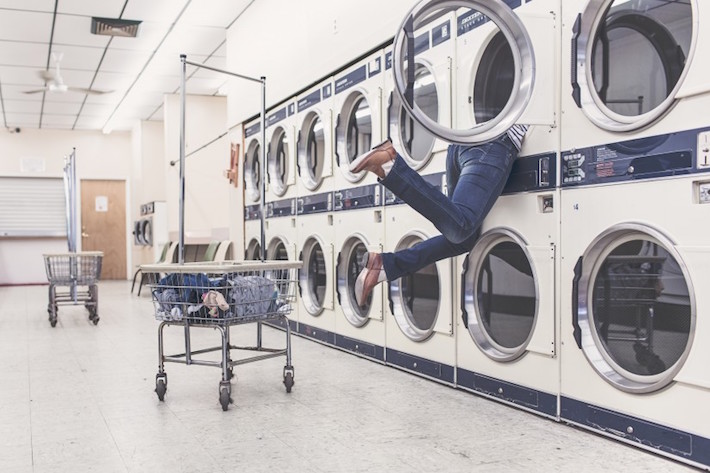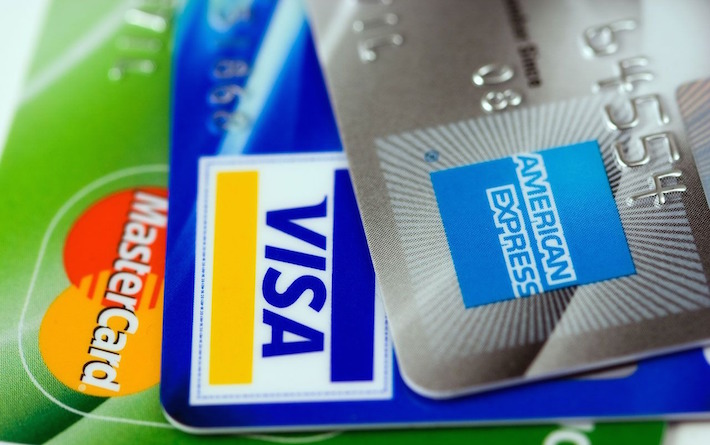5 common myths about charging your mobile phone battery
As iPhone 5 owners are scrambling to find a solution for their dying batteries, we started to wonder what's true and what's not true about mobile phones and their batteries.
Your phone's specs may say your phone gets hours and hours of talk time, but in reality the life of your battery never seems to live up to its expectations. Are you doing something right? Are you doing something wrong? You'll never know if you believe the myths we've listed below.
The top 5 ‘free’ things to avoid this winter
Who doesn't love a freebie? Whether it's a friend offering a slice of used-goods heaven or a garage-sale orphan looking for a happy home, second-hand goods are quite a tantalising offer for thrifty shoppers.
Free things may give you a lot more than you bargained for (and that's not always a good thing). If you're looking to save a little money, you'll do well to think twice before snagging these used or cheap products.
Here's our top 5 free things where the initial save can cost you more in the long run.
Let your phone battery last longer with these 6 awesome tricks
We’ve all experience life coming to a screeching halt when our mobile phone battery has gone flat at the worst time possible. To help with this modern day disaster, we've searched the techosphere to find these 6 easy ways of ensuring all your must-have apps are available to you 24 x 7.
Of course, there are situations like Apple's current iPhone 5 disaster where you can't do anything to prolong the life of your battery because the battery itself was defective from the start. If you've got an iPhone 5 with a dodgy battery, you need to sign up to our campaign to get Apple to replace the faulty battery for FREE. Fill out a simple form and we'll do the rest on your behalf. With your help, we will urge Apple to do something about the shoddy battery life we've seen in iPhones and in the new Apple Watch.
The healthiest way to dry your clothes is old school (and we love it)
Your dryer is one of the greediest appliances in your home. Aside from your refrigerator, it guzzles electricity faster than every other appliance in your household.
With about two out of every 10 Australians unable to pay their electric bill at least once a year because they can't afford it, it's about time you said “Adios!” to the electrical dryer and opt for the healthier, cheaper option of line-drying your clothes.
Wotif gives 20 million back to its users after abandoning cruel charging practices
Easter means higher prices thanks in part to public holiday surcharges. If you're in the midst of making holiday plans, there is some good news. Wotif has dumped its $5.50 'booking fee'. It has also dropped the $16.95 charge for flights with full-service airlines and flights with low-cost carriers now attract a reduced fee of $9.95. How lucrative are these surcharges for companies? It's expected consumers could save as much as $20 million a year from these changes made by Wotif.
But surcharges have gone beyond public holidays. There’s airlines – 'fuel surcharge', room service – 'delivery charge', taxis – 'booking fee', restaurants and cafes – 'cakeage', 'corkage' and a surcharge for a 'group booking'. Even a concert ticket purchase comes complete with booking and ticketing fees. I’m sure you’ve got a few more of your favourites to add to the list!
So, what’s happened over the last decade that has seen surcharges become so prevalent in our daily lives? Is this a trend set to continue in the future?
The 5 terrible shoppers we’ve all been at least once
Customer behaviour is getting out-of-hand and companies are shifting their policies in response to thorn-in-the-side or dishonest customers.
So does the blame rest with your fellow shoppers or could you be one of those never-to-be-pleased customers? Either way, bad consumer behaviour means, you lose out.
Aussies now entitled to a refund on their video games
Today, the Australian Competition and Consumer Commission (ACCC) has made the case that EA has not been doing the right thing. By denying customers entitled to refunds, EA has been in breech of the Australian Consumer Laws (ACL).
"We Stand By Our Games. If you don't love it, return it." is the promise made by the world’s third largest publisher and developer of video games, Electronic Arts known as EA, who run the Origin video game distribution platform.
The Green Debate: Front Loaders vs Top Loaders
Your current washing machine has probably lasted at least 10 years, so if you’re looking for a replacement, a lot has changed since your last purchase.
The average Australian household does 4-5 loads of washing per week. We rely on our washing machine almost as much as our refrigerator. So it's no surprise that performance rather than price is what most people care about when making their decision on which type to buy.
To help you make the right decision, the Two Hoots team has compared the modern day front loaders and top loaders on price, performance and longevity. Our results will surprise you.
7 foods you’re better off eating out than at home
Aussies love to eat out. A recent report found that we visit cafes, takeaway shops and restaurants around four times a month and spend around $70 per week dining out.
Our love affair with eating out has grown over the years. 20 years ago, Australian households spent around 20 per cent of their weekly food budget on eating out. Today, it’s around 30 per cent.
So are we heading the way of the United States? A recent report claims that American’s are spending more eating out than at the grocery store.
A major supermarket brand claims that the weekly supermarket shop is dead. We now use the supermarket more like a panty with last minute shops of the necessary ingredients to whip up the latest MasterChef inspired recipe.
When we considered $70 per week is spent dining out compared with $139 per week on groceries, we thought we'd answer the following question.
When are you better off eating out and when are you better off eating in?
This love will rock your world – but not in a good way
As dating websites and apps become more popular, so do the number of online romance scams. In Australia, $28 million last year was lost in romance schemes. These figures are only the tip of the iceberg as many victims are reluctant to admit to friends, family or authorities that they fell for a scam.
We've spoken to many people who have fallen victim to romance scams and what's important to know is that these aren't silly people handing over cash within the first five minutes of meeting someone. They are regular folk looking for friendship or love.
So how likely is it that your new internet love interest will go after your bank account? And what are the signs to look out for?
We've compiled the Top 5 strategies used by love scammers.










